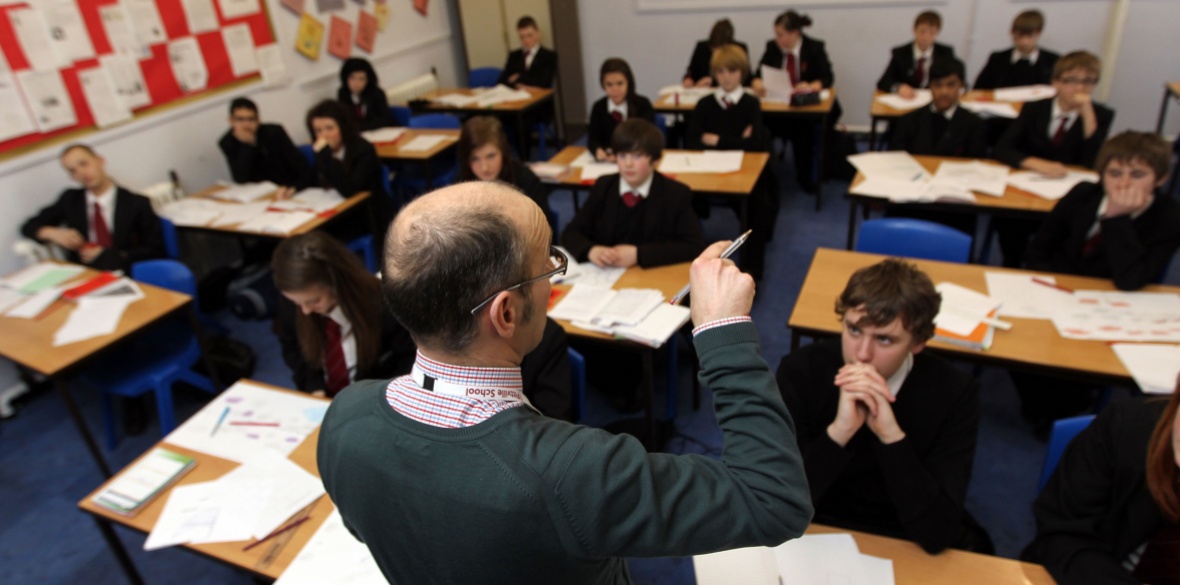This is the last article you can read this month
You can read more article this month
You can read more articles this month
Sorry your limit is up for this month
Reset on:
Please help support the Morning Star by subscribing here
MORE than 100 Scottish schools are teaching three or more different qualifications in the same classroom at once, it emerged today.
A fiery exchange at First Minister’s Questions came as the Education Institute of Scotland (EIS) union said high workloads were “top of the list” of teachers’ concerns.
But Deputy First Minister John Swinney dismissed concerns over combined classes as a “moan-fest.”
Freedom of Information requests showed out of the 238 schools that responded, 112 had combined classes for three levels, with a further 11 squeezing in four qualifications.
At Bridge of Don Academy in Aberdeen, there are a whopping 40 combined classes.
Scottish Tory leader Ruth Davidson said: “Across Scotland, thousands of pupils are being thrown together in combined classes, because the school doesn’t have the resources to teach qualifications separately.
“It’s unfair on the children who have to compete for the teacher’s attention and unfair on teachers who have to conduct up to four different lessons all at the same time.”
The EIS has warned of an “explosion” of multilevel teaching, and fellow teachers’ union NASUWT said the phenomenon creates “intolerable workload or stress” for teachers.
But Mr Swinney, who holds the education portfolio and was standing in for Nicola Sturgeon at FMQs, said Ms Davidson had been “cooking up the moan-fest to bring to Parliament” rather than recognising “what is being achieved” by young people and teachers.
“I recognise there is a debate to be had,” he said. “But I also want to make sure we do not lose sight of the phenomenal achievement that young people are making in our education system today.”
Opening EIS’s AGM in Perth today, union president Alison Thornton suggested that teachers still had concerns over being “undervalued” in spite of the recent pay deal.
Teachers achieved a rise of over 10 per cent after the EIS rejected a number of lower offers and prepared for a strike ballot.
Ms Thornton said that in a recent survey of teachers’ concerns, “top of the list alongside pay were workload, issues related to additional support needs, lack of access to professional development and lack of career progress options.”
And she argued that EIS members working in universities, who are being balloted in a separate dispute, had also faced “years of sub-inflationary pay rises and excessive workloads.”

 Conrad Landin
Conrad Landin








